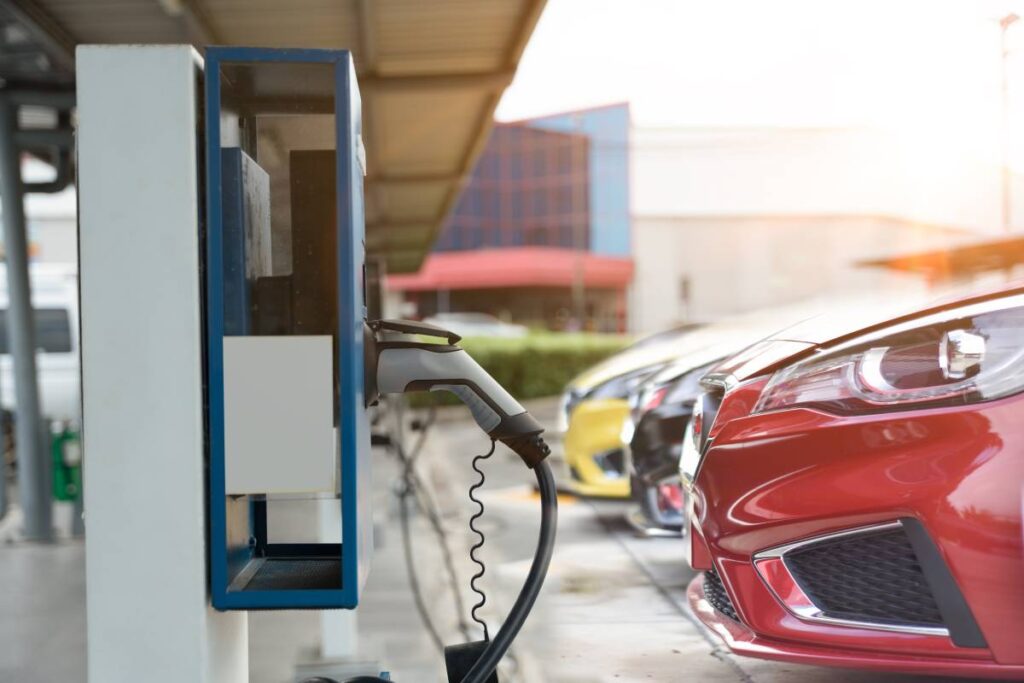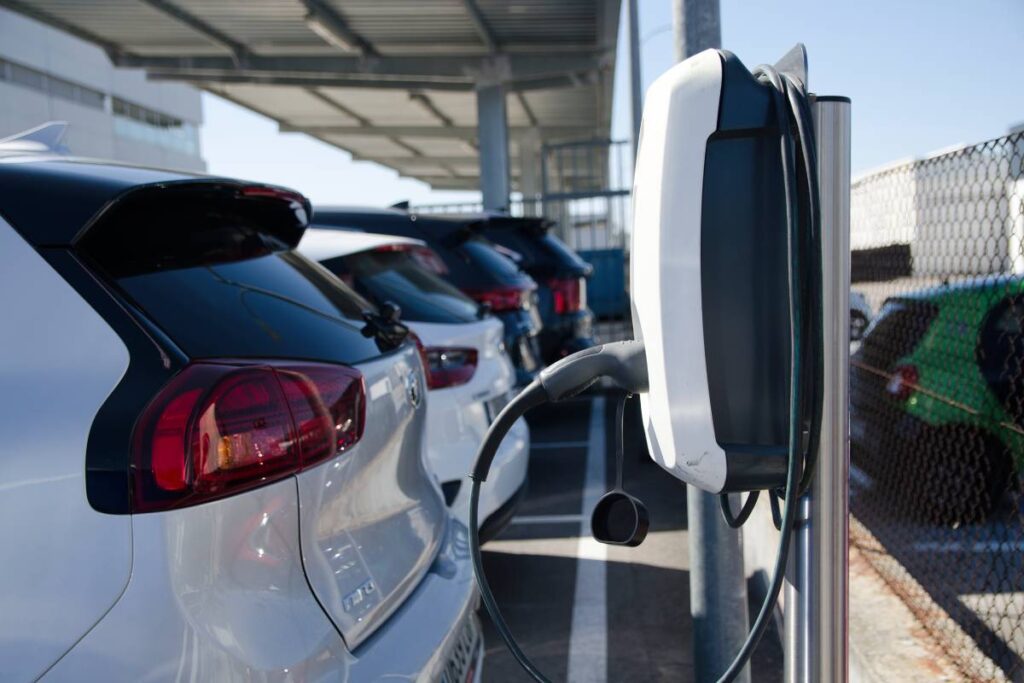As the world continues driving toward a greener and more sustainable future, electric vehicles (EVs) are gaining popularity among businesses. But is it worth all the hype?
In this blog post, we’re going to take a closer look at the importance of EV fleet management, the cost of installing EV charging points for your fleet, and the advantages of making the transition from traditional motors to EVs.
Whether you’re a small, emerging business or a large and well-established organisation, read on to discover the benefits and considerations of embracing electric vehicles for your fleet.
What Is a Fleet of EV Cars?
A fleet of EV cars refers to a group of electric vehicles owned or leased by a company or organisation.
These EVs can include sedans, SUVs, vans, or any other type of vehicle suitable for specific business needs (whether it be airport transfers, logistics and deliveries, or any other industry that relies heavily on having a fleet of vehicles).
Of course, the size of an EV fleet can vary depending on the requirements and scale of the business – however, you must have a minimum of 5 vehicles for it to be considered as a fleet (not that it matters).

What Is Meant by EV Fleet Management? What Tasks Are Involved?
Now that we know what an EV fleet is, what is meant by ‘EV fleet management’? What’s involved?
EV fleet management involves overseeing and optimising the operations of an EV fleet. It includes tasks such as:
- Vehicle acquisition: Selecting and procuring the right EV models to meet the business’s needs and budget.
- Charging infrastructure planning: Determining the number and location of charging points required for the fleet.
- Charging station installation: Collaborating with charging infrastructure providers to install EV charging stations at appropriate locations (which we will cover shortly).
- Charging management: Monitoring the charging activities, ensuring efficient utilization of charging infrastructure, and addressing any issues or maintenance requirements.
- Range and route optimisation: Planning routes and schedules to maximise the range of EVs and minimise downtime.
- Data analysis: Collecting and analysing data on energy consumption, charging patterns, and vehicle performance to optimise fleet efficiency.
- Maintenance and support: Scheduling regular maintenance and addressing any repairs or technical issues that arise.

How Much Will It Cost to Install EV Points for My Fleet? Will It Be Worth the Investment?
Now onto the important question: how much is it going to set you back to have EV points installed at your premises?
As you may have guessed, the cost of installing EV points for your fleet depends on a variety of different factors, including:
- Number of charging points required: The size of your fleet and the anticipated charging demand will determine the number of charging points needed (you also need to consider your growth rate and whether you will be expanding to a larger fleet in the near future).
- Charging infrastructure type: The cost can vary based on the charging technology chosen, such as Level 2 AC chargers or DC fast chargers (Level 2 AC chargers are cheaper than DC fast chargers).
- For commercial EV charging installations, you’ll be looking at around $2,000 to $10,000 (and higher).
- You may be able to secure a good deal on fleet EV charger installations due to the size of the project (e.g., installing 1 charging station will be more expensive per unit than installing 10 charging stations).
- Electrical infrastructure upgrades: If your existing electrical system cannot support the additional load, upgrades may be necessary.
- Installation and labour costs: The complexity of installation, location considerations, and labour rates can affect the overall cost.
While the initial investment in EV points may seem significant, it’s important to consider the long-term benefits and savings that can outweigh the costs:
- Reduced fuel costs: Charging EVs is generally cheaper than fuelling conventional vehicles, resulting in long-term cost savings.
- Environmental benefits: Switching to an EV fleet reduces greenhouse gas emissions and contributes to a cleaner environment.
- Potential incentives and grants: Some governments and utility companies offer financial incentives or grants to support EV charging infrastructure installation.
- Future-proofing your fleet: Investing in EV charging infrastructure prepares your business for the growing demand for electric vehicles.

What Are the Advantages of Switching to an EV Fleet?
There are several advantages to transitioning your fleet to electric vehicles:
- Environmental sustainability: EVs produce zero tailpipe emissions, reducing your carbon footprint and contributing to cleaner air.
- Cost savings: EVs have lower operating and maintenance costs compared to conventional vehicles, including savings on fuel and fewer maintenance requirements.
- Energy efficiency: EVs are more energy-efficient than internal combustion engine vehicles, making better use of the energy they consume.
- Positive brand image: Embracing electric vehicles demonstrates your commitment to sustainability and positions your business as an environmentally responsible organisation (something that carries a lot of weight in this day and age). Combine an EV transition with other eco-friendly changes such as installing tinted windows in your establishment and you’ll be well on your way to bolstering a positive brand image.
- Access to restricted zones: In certain cities, EVs may be granted access to restricted zones or receive preferential treatment, providing operational advantages.
- Employee satisfaction: Offering EVs as part of your fleet can enhance employee satisfaction and attract environmentally conscious talent.
Conclusion
A fleet of EV cars presents an opportunity for businesses to adopt sustainable transportation solutions while reaping various benefits.
EV fleet management involves efficiently managing the operations of an EV fleet, including vehicle acquisition, charging infrastructure planning, and maintenance.
While the cost of installing EV points for your fleet may require a sizeable initial investment, the long-term advantages, such as cost savings, environmental benefits, and a positive brand image, make it a worthwhile endeavour indeed.
By transitioning to an EV fleet, your business can contribute to a greener future, achieve cost efficiencies, and position yourself as a leader in sustainability.
Embrace the power of electric vehicles and drive your business toward a cleaner and more sustainable future!



